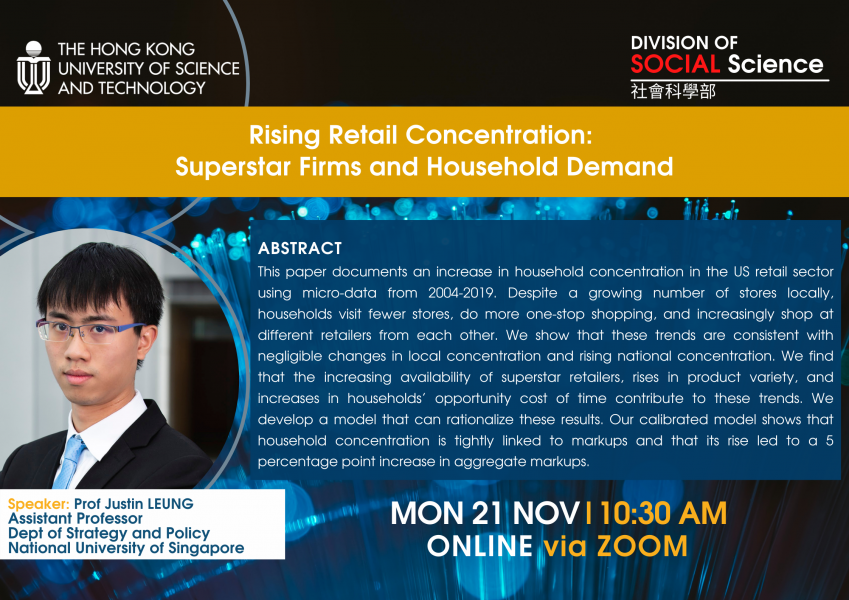This paper documents an increase in household concentration in the US retail sector using micro-data from 2004-2019. Despite a growing number of stores locally, households visit fewer stores, do more one-stop shopping, and increasingly shop at different retailers from each other. We show that these trends are consistent with negligible changes in local concentration and rising national concentration. We find that the increasing availability of superstar retailers, rises in product variety, and increases in households’ opportunity cost of time contribute to these trends. We develop a model that can rationalize these results. Our calibrated model shows that household concentration is tightly linked to markups and that its rise led to a 5 percentage point increase in aggregate markups.
Justin Leung is an applied micro-economist. He currently works as an assistant professor at the National University of Singapore. He obtained a PhD degree in Economics at the University of Chicago Booth School of Business. His research interests include labor economics, public economics, and industrial organization.
Remarks
- ZOOM link will be sent via email, for HKUST members ONLY
- Please use your HKUST ITSC account to join the zoom meeting.
- This meeting is being recorded. By joining, you are giving consent for this meeting to be recorded.

